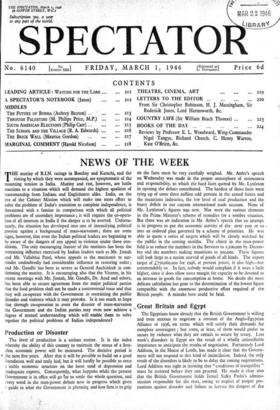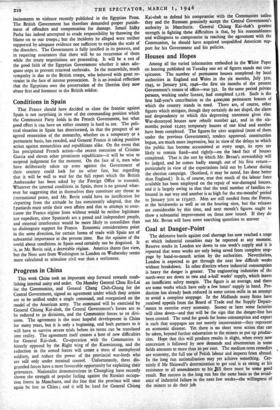Great Britain and Egypt
The Egyptians know already that the British Government is willing and even anxious to negotiate a revision of the Anglo-Egyptian Alliance of 1936, on terms which will satisfy their demands for complete sovereignty ; but some, at least, of them would prefer to secure by violence what they are certain to secure by treaty. Last week's disorders in Egypt are the result of a wholly unjustifiable impatience to anticipate the results of negotiation. Fortunately Lord Addison, in the House of Lords, has made it clear that the Govern- ment will not respond to this kind of intimidation. Indeed, the only result of the disorders is likely to be to delay the coming negotiations. Lord Addison was right in insisting that "conditions of tranquillity" must be restored before they can proceed. He made it clear also that the British Government holds Ismail Sidky Pasha's admini- stration responsible for the riots, owing to neglect of proper pre- cautions against disorder and failure to foresee the dangers of the incitements to violence recently published in the Egyptian Press. The British Government has therefore demanded proper punish- ment of offenders and compensation for damage. Ismail Sidky Pasha has indeed attempted to evade responsibility by throwing the blame on to our troops.; but the incidents he alleged were neither supported by adequate evidence nor sufficient to explain the scale of the disorders. The Government is fully justified in its protests, and in requiring assurances that there will be no recurrence of them while the treaty negotiations are proceeding. It will be a test of the good faith of the Egyptian Government whether it takes ade- quate steps to prevent renewed outbreaks. In the meanwhile, much sympathy is due to the British troops, who behaved with great re- straint in the face of intense provocation. It is an ironical reflection that the Egyptians owe the preservation of the liberties they now abuse first and foremost to the British soldier.



























